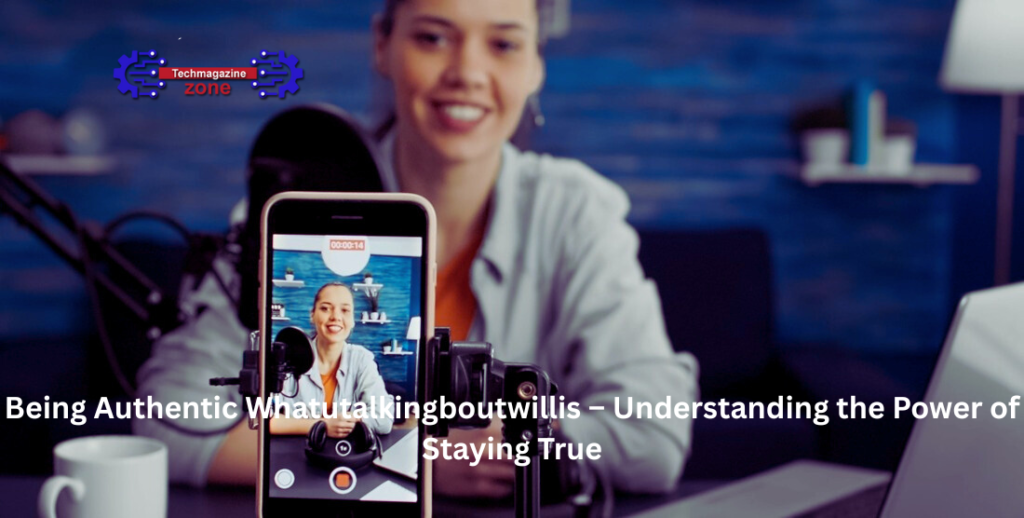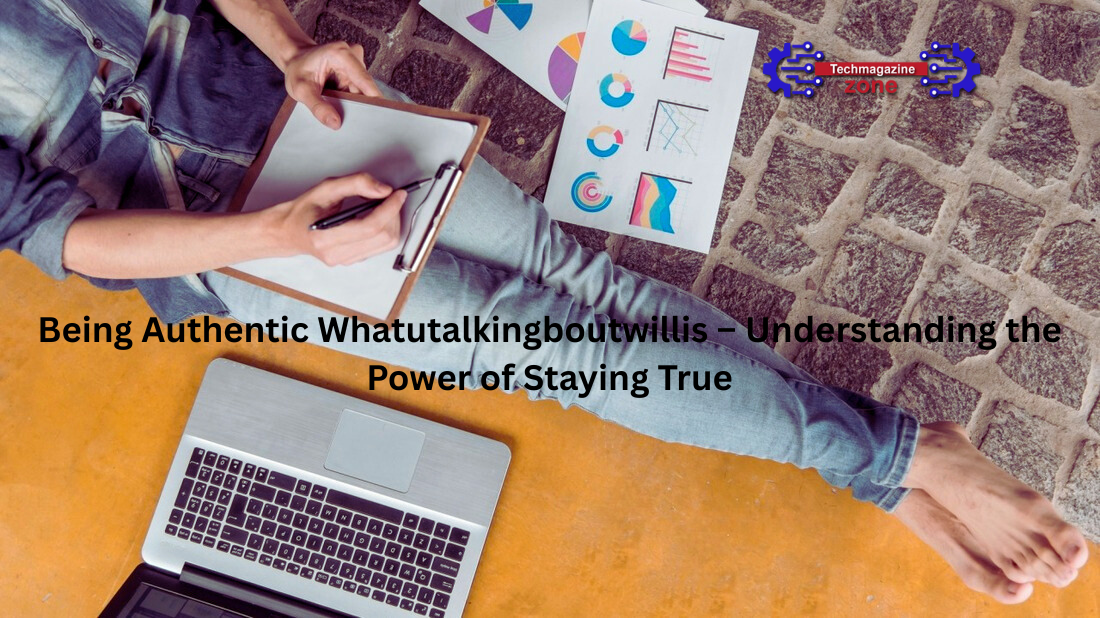In today’s digital world, the concept of being authentic has become more relevant than ever. Combine that with the quirky phrase “whatutalkingboutwillis”—a pop culture catchphrase from the 1980s—and you have a powerful, attention-grabbing keyword: being authentic whatutalkingboutwillis.
But what does it really mean? How can being authentic help us in our lives and careers? And what does “whatutalkingboutwillis” have to do with all of this? In this article, we dive deep into the meaning behind the keyword, explore the value of authenticity, and connect it all with culture and communication.
The Origin of “Being Authentic Whatutalkingboutwillis
To unpack this unique keyword, let’s break it into two parts:
- Being Authentic: Living and communicating in a way that aligns with your true self—your values, beliefs, and identity.
- Whatutalkingboutwillis: A phrase made famous by the TV character Arnold Jackson (played by Gary Coleman) from the 1980s sitcom Diff’rent Strokes. He used it to express skepticism or confusion, often with comedic effect.
Combining these two phrases suggests a conversation between staying true to oneself while also confronting moments of doubt, confusion, or external questioning. In essence, being authentic whatutalkingboutwillis can represent how authenticity stands strong even in the face of societal disbelief or judgment.
Being Authentic Whatutalkingboutwillis in Everyday Life
Living authentically means:
- Speaking honestly
- Acting in alignment with your values
- Avoiding people-pleasing behavior
- Embracing vulnerability
But in real life, when you express yourself authentically, you may often hear the equivalent of “What you talkin’ ’bout, Willis?” from others—whether it’s confusion, skepticism, or even resistance. That’s where the phrase earns its relevance.
In a world that encourages conformity, authenticity can be met with surprise or misunderstanding. Still, it’s worth the effort.
Being Authentic Whatutalkingboutwillis in the Workplace
The workplace is one of the hardest places to practice authenticity. Between professional expectations, company culture, and competition, it’s tempting to wear a mask. Yet, authenticity has proven to boost:
- Employee satisfaction
- Creativity
- Trust among teams
- Leadership effectiveness
When leaders are authentic, they connect better with their teams. When employees feel safe being themselves, they perform better and stay longer. So the next time someone figuratively says, “whatutalkingboutwillis” when you speak up with honesty or new ideas, remember—it’s a sign you’re shaking the status quo.
Why “Being Authentic Whatutalkingboutwillis” Matters in Relationships
Authenticity isn’t just for the workplace or social media—it’s vital in personal relationships. Being your true self means showing up without filters, expressing your feelings honestly, and allowing others to see the real you.
That can feel risky. Vulnerability opens the door for rejection. And again, you might hear responses like “What are you talking about?” or worse—silence. But real connection only happens when both people are being authentic.
Here’s how to be more authentic in relationships:
- Speak from the heart
- Listen actively and without judgment
- Set clear boundaries
- Share your struggles as well as your strengths
In this context, being authentic whatutalkingboutwillis becomes a motto for deeper, more meaningful relationships.

Being Authentic Whatutalkingboutwillis and Social Media
Social media has made it easy to create curated, filtered versions of our lives. But more and more users are rejecting this perfection and embracing authenticity. They’re sharing real moments, failures, and unfiltered thoughts.
Yet, as soon as someone breaks the mold, there’s always a reaction—likes, comments, and sometimes criticism. You guessed it: “whatutalkingboutwillis” reactions from followers who aren’t used to realness. Still, the trend is growing. People crave real connection—even online.
If you’re trying to be more authentic on social platforms:
- Share your true experiences, not just your highlights
- Avoid over-editing your posts or photos
- Be honest about struggles and successes
- Use your voice, not what you think people want to hear
Cultural Significance of the Phrase “Whatutalkingboutwillis”
The phrase “What you talkin’ ‘bout, Willis?” became iconic because it captured a specific reaction—disbelief, surprise, or even subtle rebellion. It represents those moments when someone challenges the norm or says something unexpected.
When you pair this with being authentic, it becomes a powerful cultural symbol:
- You say your truth → others don’t get it → you keep being yourself anyway.
It reflects what many people face when they stand out—whether due to their ideas, identity, or emotions. The phrase gives language to the awkwardness that often follows honesty.
Being Authentic Whatutalkingboutwillis as a Lifestyle
You can make being authentic whatutalkingboutwillis more than a catchy phrase. Make it your mantra. It means:
“I will live as myself, even when others don’t understand.”
That kind of courage is rare—but it changes everything. It creates a ripple effect, giving others permission to do the same.
To build an authentic lifestyle:
- Journal your thoughts and values
- Surround yourself with people who appreciate your real self
- Say “no” when things don’t align with your values
- Practice self-acceptance, even when you feel misunderstood
The Role of Humor in “Being Authentic Whatutalkingboutwillis”
Humor is a tool for survival, especially when you’re navigating authenticity. The phrase “whatutalkingboutwillis” has always had a humorous tone—it softens tough conversations, makes people laugh, and challenges absurdity.
Authenticity doesn’t mean being serious all the time. It means being real. And sometimes, being real means being funny, quirky, or even awkward.
Laughter breaks down walls. So next time someone gives you a strange look or questions your choices, you can smile and think: “Whatutalkingboutwillis?”
Using “Being Authentic Whatutalkingboutwillis” in Branding and Messaging
If you’re a creator, entrepreneur, or business leader, this keyword offers a bold branding opportunity. It fuses honesty with cultural flavor. Imagine using it as a campaign theme, podcast title, or tagline.
Benefits of this approach:
- Stands out in a crowded market
- Shows personality and relatability
- Appeals to Gen X, Millennials, and nostalgic Gen Zers
Brands today must be authentic. Consumers value honesty and transparency more than ever. So weaving a fun, nostalgic, and real phrase like “being authentic whatutalkingboutwillis” into your messaging could create an instant emotional connection.
Conclusion: Embrace Being Authentic Whatutalkingboutwillis
In a world that often encourages perfection, fitting in, and following trends, being authentic whatutalkingboutwillis reminds us of the value in staying true. Whether you’re at work, online, in relationships, or navigating culture, authenticity isn’t just an idea—it’s a courageous lifestyle.
And yes, you might face skepticism. People may metaphorically raise their eyebrows and say, “What you talkin’ ’bout, Willis?” But that’s okay. Keep talking. Keep showing up. Keep being real.
